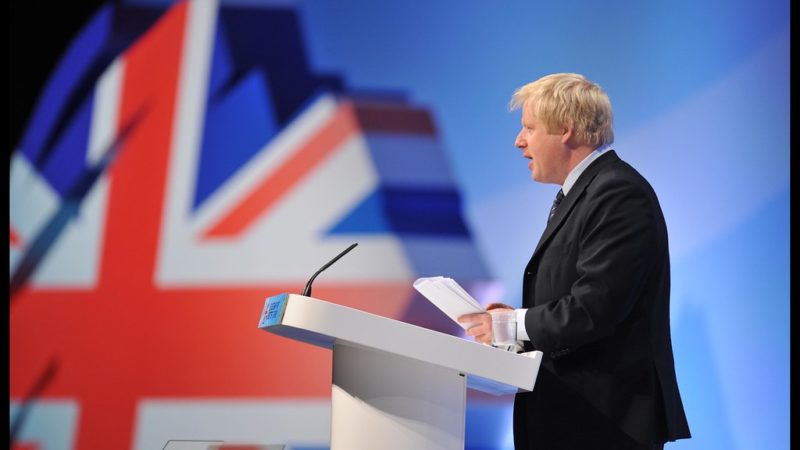'Promises can enrol people but many can’t easily be delivered.'

Prem Sikka is an Emeritus Professor of Accounting at the University of Essex and the University of Sheffield, a Labour member of the House of Lords, and Contributing Editor at Left Foot Forward.
The language of politics is full of grand claims which mask the smoke and mirror games played by political parties advancing their ideological objectives.
People’s support for Brexit was secured through nationalistic slogans which imagined that outside the EU Britain would somehow dictate the terms of trade to others. The campaign promised to take back control and empower people. The reward was a supposed new era of prosperity. Such messages were amplified by the mainstream media and propelled the Conservatives to election victory.
Promises can enrol people but many can’t easily be delivered. Far from the promised prosperity, the UK economy is stagnant and household incomes are facing a major squeeze as energy and food prices are rising. The post-Brexit labour shortages and supply chain problems have slowed the economy. After shunning the EU, the UK is trying to secure trading agreements with the USA, Australia, India and others. Such agreements require compromises by sovereign states and the UK has to accept rules which it might not have been very keen on.
There has been no post-Brexit empowerment of parliament or the people. For example, Boris Johnson’s September 2019 prorogation of parliament and its subsequent successful challenge in the Supreme Court showed the limits of Prime Minister’s power and highlighted people’s ability to challenge the abuses of power. The government’s response is the Dissolution and Calling of Parliament Bill which enables the Prime Minister to dissolve parliament without any vote. Concerned citizens cannot ask the courts to intervene.
Protests are a key mechanism for renewing democracy. Workers, women, environmentalists, anti-war campaigners, pensioners and others have used protests and marches to give visibility to social problems and challenge governments to rethink their policies. However, the Police, Crime, Sentencing and Courts Bill criminalises people’s right to demonstrate. People may face criminal charges if their protests are too noisy and cause disruption to others. The police can stop and search people suspected of carrying items, such as placards and banners, which may be used in a protest.
The Covert Human Intelligence Sources (Criminal Conduct) Act 2021 enables individuals authorised by the state to commit murder, torture, rape and other crimes with immunity from prosecution. The justification for such heinous acts is that they are in the interests of national security; help in preventing or detecting crime or of preventing disorder; or are in the interests of the economic well-being of the United Kingdom.
There is little evidence to show that any of the basic claims of Brexit have been delivered or are likely to be delivered. So what was the real agenda? According to Conservative MPs:
“The whole point of Brexit is radical supply side reform and moving away from the EU model”.
By supply side reform they mean further privatisations; deregulation; tax cuts for the rich; cuts to public services; less protection for workers, consumers and vulnerable citizens. Such policies affect people and ferment dissent. The government has prepared the ground for quelling that by weakening the power of parliament, courts and the people. There is an organised assault on all points of resistance. How many people voted for the loss of civil liberties, further privatisation of social care and the NHS, weakening of local government, cuts to public services; hungry school children, wage freezes, casualization of work, low state pension and social security benefits, or a situation where the poorest 10% of households pay 47.6% of their income in direct and indirect taxes, compared to 33.5% by the richest 10% of the households? Such changes have been imposed through a nationalistic rhetoric and a Brexit sleight of hand.
It is not the first time that governments have engaged in doublespeak to advance their ideological aims. In the 1980s, the Thatcher government pursued its agenda of privatisations, anti-trade union laws, wage freezes; cuts in the state pension, social security benefits and public services by claiming that it was all necessary to control inflation. The mainstream media amplified this message with little critical scrutiny, just as it later promoted the myths associated with Brexit. Some years later Sir Alan Budd, one time economic adviser to the Thatcher Government, said:
“My worry is … that there may have been people making the actual policy decisions … who never believed for a moment that this was the correct way to bring down inflation. They did, however, see that it would be a very, very good way to raise unemployment, and raising unemployment was an extremely desirable way of reducing the strength of the working classes – if you like, that what was engineered there in Marxist terms was a crisis of capitalism which recreated a reserve army of labour and has allowed the capitalists to make high profits ever since.”
In essence, the Conservative government has used the cover of Brexit for its never-ending class wars to discipline the working class and enrich a few at the expense of the many. People need to be sceptical of grand nationalistic claims which almost always hurt and disenfranchise them. We also need politics devoted to building a just and equitable society.
To reach hundreds of thousands of new readers we need to grow our donor base substantially.
That's why in 2024, we are seeking to generate 150 additional regular donors to support Left Foot Forward's work.
We still need another 117 people to donate to hit the target. You can help. Donate today.



